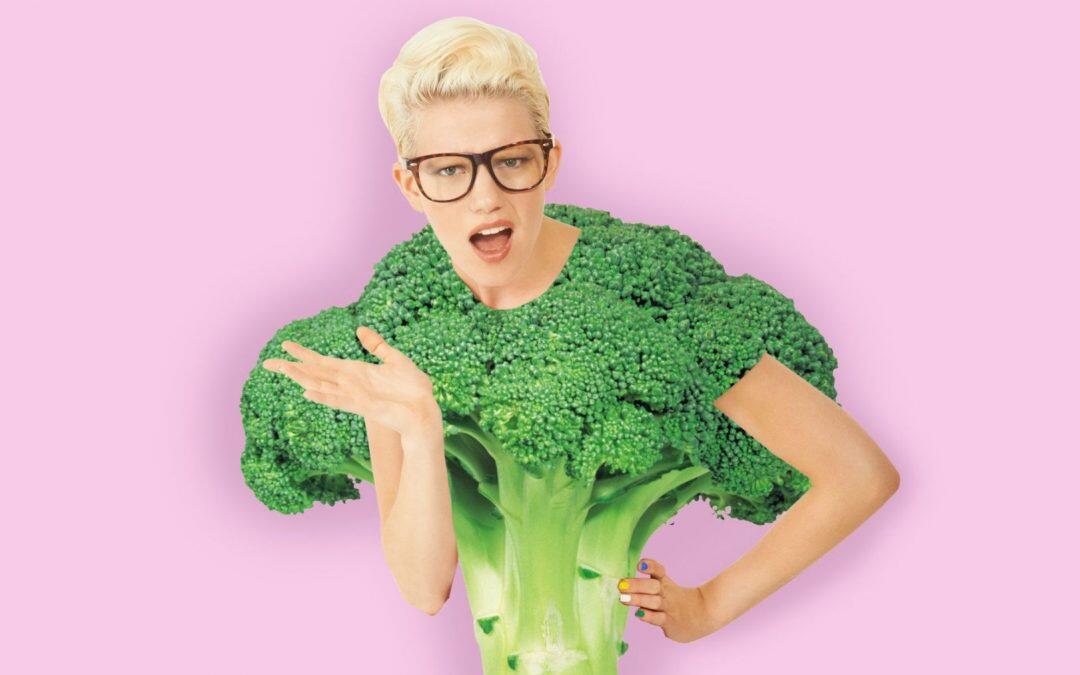These days, it’s almost taboo to string those three words together but that’s what it is; I’m trying to shred the fat, build muscle and sort out my chronic digestive issues by swerving the carbs, filling up on big green salads and getting a big dose of protein every day.
Why? Because I want to be fitter and healthier and I want to change the way my body looks. And to do that, I’m having to eat – for want of a better word – ‘clean’.
Clean eating, the kind championed by the likes of Deliciously Ella and the Hemsley sisters, has recently been blamed for sending young women into a spiral of eating disorders and unhealthily restrictive dietary attitudes.
Promoting dairy-free, sugar-free, gluten-free dishes, clean eaters are supposed to have convinced everyone to give up on health and happiness in order to pledge allegiance to a minimal calorie existence.
So toxic has the term begun, that Deliciously Ella has now removed herself away from the trend she spearheaded.
But one wonders if we’ve all gone too far with this clean eating bashing.
I know countless women who go through bouts of very healthy eating in pursuit of a fitter, healthier life. Whether they’re doing it to look better or feel better, it doesn’t really matter. Our bodies are our bodies.
Yet rather than applaud them, we vilify these women who are making conscious decisions about their health, and make out that they’re victims of disordered eating.
Don’t get me wrong, orthorexia is real. There’s no getting away from that, and obsessing over healthy eating and exercise is no way to live.
But eating healthily as part of a healthy lifestyle – not as a restrictive diet – should be encouraged.
We shouldn’t discourage women from wanting to eat healthier. We all need to be eating stacks of leafy greens, mineral-rich grains, protein-rich fish or pulses.
We know that sugar is bad for us – and it’s becoming increasingly difficult to keep the amount we consume down, now that so many ‘healthy’ snacks are packed with coconut sugar or maple syrup and other substances that are defined as ‘non-refined sugars’.
Sitting back and telling people to eat whatever they want, when they want, isn’t doing anyone any favours. I’ve met old couples whose bodies are absolutely falling apart from the unhealthy excesses of their youth.
One family friend is missing a number of toes, can barely walk, has cataracts and God knows what else thanks to severe diabetes. How did she get it? By having lashings of jam on toast, sugar in tea, puddings with every meal. Nothing extreme but there we have it. For everyone who can eat lots of sugar and be fine, there are the unlucky ones who are damaged by it.
The real issue with ‘clean’ eating, obviously is where people use healthy eating as an eating disorder substitute.
Calling it ‘clean’ implies some food is dirty. But on the whole, we know what dirty food is. It’s the ultra greasy, ultra salty, ultra bad for us stuff we treat ourselves to. A dirty burger. A plate of dirty fried chicken. A dirty doughnut.
No doubt ‘clean eating’ has, unfortunately, persuaded some women to think that ‘dirty’ also now applies to bread, pasta, cows milk, and other nutritious foods that don’t fall into the ‘free-from’ category. And that is harmful.
Instagram is largely to blame. How many of us spend hours scrolling through pictures of Buddha bowls online and carb-free dishes? Food porn is one thing, but when you’re confronted with images of sugar-free/carb-free/meat-free/wheat-free food day in, day out, it can be easy to think about food all the time.
And if you start denying yourself certain foods, it can become a constant mental occupation.
But still, there’s nothing wrong with mindful eating. The growing obesity epidemic is in part down to the fact that many people can’t be bothered or aren’t educated enough to cook nutritious meals that fill them up between feeds and don’t destabilise their insulin levels. Many people who are overweight really eat very little; it’s the foods they eat when they eat that are the problem.
With a growing interest in cooking stuff from scratch, not buying processed foods and really eating above and beyond the RDA of fruit and veg, we’re looking at a future where fewer of us are going to be riddled with diabetes or lifestyle-induced cancers.
So many of us are more active today than we’ve ever been and this lifestyle if carried on, is going to stand us in good stead.
But it isn’t rocket science to point out that one cannot survive on lettuce alone. Or chia seeds. Or those horrible ‘nicecreams’ all over your feeds.
Drink some kind of milk every day and your bones will thank you for it. Having a little sugar here and there won’t kill you. If you’re doing lots of cardio, carbs are necessary.
It’s common sense.
Cutting down on pre-made sandwiches, cereal bars and isn’t something we should be scoffing at or telling women is a dangerous idea.
Many of us just want to feel better and have more control over what we’re putting in our bodies. We have no idea what preservatives go into pre-made foods. Look any packet of sandwiches or microwave dishes and you’ll notice ingredients that you either don’t understand or which you wouldn’t add yourself if you were making them at home.
Can that be right?
Whatever your food choices, they’ve got to be right for you. It’s OK to call something ‘clean eating’ – it’s a name that’s been wrongly appropriated and misconstrued.
If you want to get Greggs for breakfast, do it. If you want to eat a low-fructose fruit salad, that’s great. Someone will tell you that you’re wrong, whatever your choice; you’ve got to recognise what your body wants or needs.
Either way, we need to stop telling women to be afraid of their food choices.
Source: http://bit.ly/2gPbfNn











